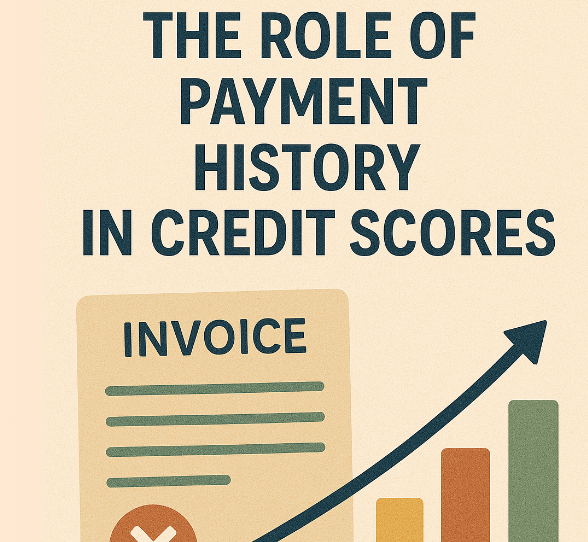The Role of Payment History in Your Credit Score
When it comes to your credit score, payment history is king. In fact, it’s the single most important factor used to calculate your credit score, making up a whopping 35% of your FICO score. Whether you’re trying to get approved for a mortgage, qualify for a new credit card, or even secure better insurance rates, your payment history plays a central role.
But what exactly counts as payment history, and why does it matter so much? Let’s break it down.
What Is Payment History?
Your payment history is simply a record of how reliably you’ve paid back your debts in the past. Creditors want to know: Can they trust you to repay on time?
Payment history includes:
-
On-time payments (good news for your score).
-
Late or missed payments (bad news for your score).
-
Defaults, charge-offs, and accounts sent to collections.
-
Serious negative events like bankruptcies, foreclosures, or repossessions.
This information is reported by lenders to the three major credit bureaus—Experian, Equifax, and TransUnion—and then factored into your credit score.
Why Does Payment History Matter So Much?
Lenders view your past financial behavior as a predictor of future behavior. If you’ve consistently paid bills on time, you’re considered less risky, which makes it easier to qualify for credit at favorable terms.
On the flip side, even one late payment can lower your score. The impact depends on:
-
How late the payment was (30, 60, 90+ days).
-
How recent it was (recent late payments hurt more than older ones).
-
The overall pattern (one slip-up is less damaging than a history of chronic lateness).
How Late Payments Affect Your Credit Score
-
30 Days Late: Usually the first negative mark. Can drop your score significantly if you’ve had a clean record before.
-
60–90 Days Late: More severe impact and signals deeper risk.
-
120+ Days Late: Often leads to collections or charge-offs, which can severely hurt your score for years.
These marks can stay on your credit report for up to seven years, though their impact fades over time if you return to consistent on-time payments.
How to Build a Positive Payment History
If you want a strong credit score, here’s what to focus on:
-
Always pay on time. Set up autopay or reminders to never miss due dates.
-
At least pay the minimum. While it’s better to pay in full, paying the minimum on time prevents late marks.
-
Catch up fast if you’re behind. The sooner you make a late payment, the less damage it does.
-
Communicate with creditors. If you’re struggling, some lenders may offer hardship programs to help avoid late reporting.
-
Build consistency. Positive payments over time outweigh isolated past mistakes.
Final Thoughts
Your payment history is the foundation of your credit score—and your financial reputation. Staying consistent with on-time payments not only boosts your score but also saves you money by qualifying you for lower interest rates and better loan terms.
Think of it this way: every payment is an opportunity to prove your reliability. The more positive marks you build, the stronger your credit health becomes.


